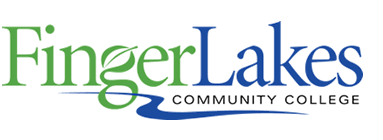Course Descriptions
Engineering Science (ESC) Courses
ESC 100 Introduction to Engineering (2-2) 3 credits
An introduction to various branches of engineering using descriptive and quantitative perspectives. Topics include modeling and mathematical analysis of basic engineering problems related to chemical, mechanical, and electrical systems with incorporation of topics of sustainability and clean environment. Problem solving, critical thinking, and technical writing skills are emphasized throughout the course.
Co-requisite: MAT 145.
View Course Syllabus 
ESC 105 Engineering Graphics (1-5) 3 credits
This course includes technical sketching, visualization, design, and the use of computer aided design (CAD). Topics include geometric construction and modeling, lettering, freehand sketching, orthographic projection, isometric projection, oblique projection, sectional views, dimensioning, working drawings, and the use of CAD software. Emphasis is on developing both manual sketching and CAD skills to convey engineering designs in accordance with industry standards.
View Course Syllabus 
ESC 170 Computing for Engineers (2-3) 3 credits
A first course that introduces a variety of fundamental computational techniques to the engineering student which are essential in the analysis and solution of engineering problems. The course utilizes the software packages of MATLAB and LabVIEW as the main computational tools. Topics include modeling, simulation, numerical analysis, data acquisition, data
visualization, and instrument control. Both the structured text and graphical programming approaches are used in the course.
Co-requisite: MAT 145.
View Course Syllabus 
ESC 211 Statics (3-0) 3 credits
This course is the first semester of a two-semester sequence in Engineering Mechanics. It presents the theory and application of the principles of statics for use in subsequent courses and in engineering practice. The subject of statics deals with bodies at rest or in equilibrium, including a study of force systems, vectors, analytical methods of solution, friction, center of gravity, centroids, and moments of inertia of areas. Prerequisites: MAT 272, PHY 151.
View Course Syllabus 
ESC 212 Dynamics (3-0) 3 credits
This course is the second semester of a two-semester sequence in Engineering Mechanics. It presents the fundamental laws of Newtonian dynamics for particles and rigid bodies, provides a rigorous methodology for solution of problems, and presents a wide variety of examples of application. Subject areas discussed are kinematics and kinetics of particles and rigid bodies including rectilinear, relative, curvilinear, rotational and, plane motion; Newton's Laws, dynamic equilibrium, angular momentum, work-energy principle, impulse-momentum principle, and angular momentum. Prerequisite: ESC 211.
View Course Syllabus 
ESC 213 Strength of Materials (3-0) 3 credits
A study of the basic concepts of strength of materials; stress and strain in external loading, shear and torsion; centroids and moments of inertia; shear, moment, and stress in beams; load, shear, and moment diagrams; design and deflection of beams (statically determinate and indeterminate); combined stresses; welded, bolted and riveted joints. Prerequisite: ESC 211.
View Course Syllabus 
ESC 222 Electric Circuits (3-2) 4 credits
This course is designed as the introductory course in linear circuit analysis normally offered to engineering students in the sophomore year. It provides an introduction to the theory of circuit analysis. Subject areas include Kirchhoff's Laws, node and mesh analysis, source transformation, Thevenin and Norton theorems, RC, RL, and RLC circuits, sinusoidal response, phasors, and power. An introduction to op-amps is included. There is a strong emphasis on problem solving in the course. Co-requisite: PHY 152.
View Course Syllabus 
ESC 235 Thermodynamics (3-0) 3 credits
This is a first course in thermodynamics. It introduces the student to the fundamental concepts of thermodynamics. The topics covered are: first and second laws of thermodynamics, thermodynamic processes as applied to perfect gases and pure substances, energy analysis of heat engines including Carnot, Otto, Diesel, and Stirling, Brayton cycle, gas turbines, jet propulsion, Rankine cycle, power plants, heat pumps, and refrigeration systems. Prerequisites: MAT 271.
View Course Syllabus 
ESC 240 Engineering Design (2-3) 3 credits
An introductory course in engineering design where student teams are guided through a comprehensive engineering design-build project. In this course, students will learn about programming microcontrollers, using machine tools, fabricating mechanisms, designing circuit boards, and selecting engineering materials. Teamwork, problem solving, prototype testing, and troubleshooting are skills that are emphasized throughout the course. Prerequisite: MAT 272.
View Course Syllabus 
